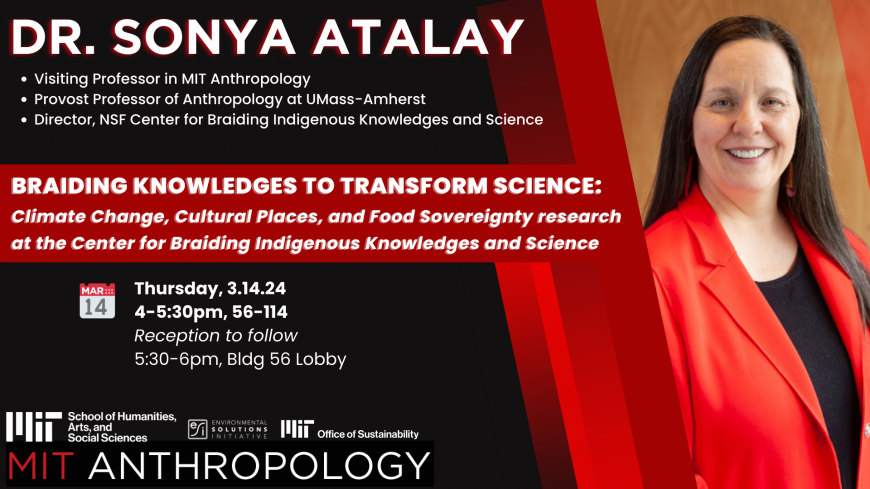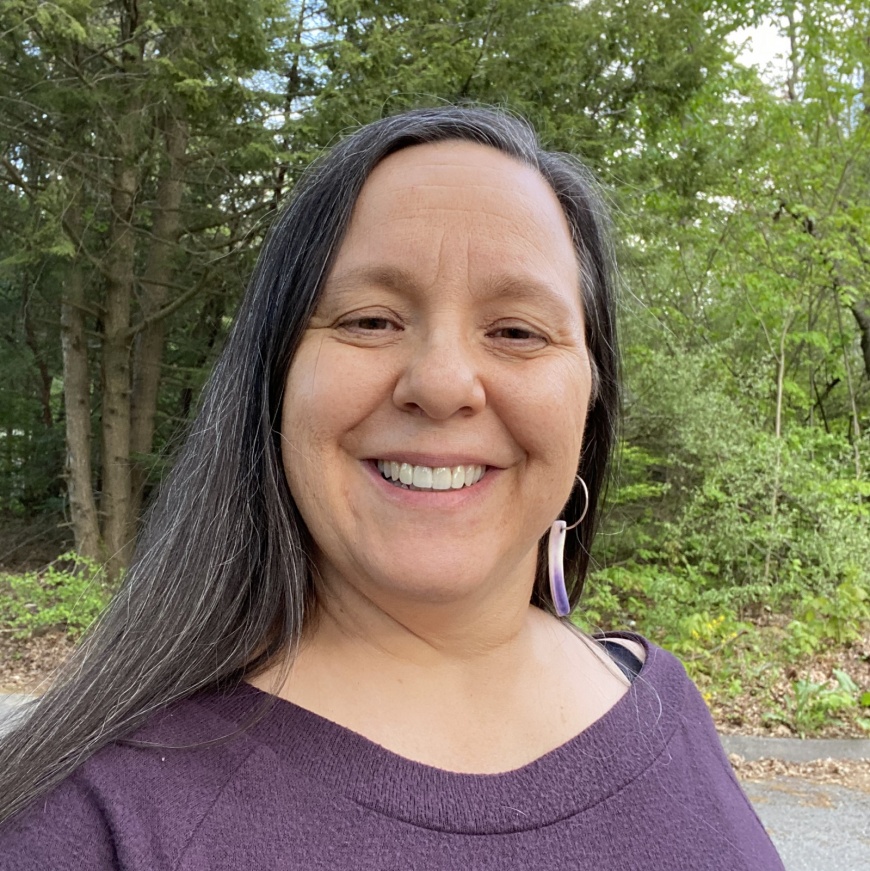Braiding Knowledges to Transform Science: Climate Change, Cultural Places, and Food Sovereignty research at the Center for Braiding Indigenous Knowledges and Science


Dr. Sonya Atalay
Visiting Professor in MIT Anthropology • Provost Professor of Anthropology at UMass-Amherst • Director, NSF Center for Braiding Indigenous Knowledges and Science
March 14, 2024 Thursday, March 14th 4-5:30pm, Reception to follow in Bldg 56 Lobby 5:30 - 6pm 56-114
Abstract:
How do we bring previously disparate ways of knowing, Indigenous Knowledge and “Western” or mainstream science, into right relationship with one another for mutual thriving of land and culture? At a time of accelerating environmental change and complex, overlapping challenges, we need a plurality of perspectives to innovate solutions. This talk focuses on work being carried out by a team of international, interdisciplinary, predominantly Indigenous scientists from the US, Canada, Australia, and Aotearoa/New Zealand as part of the newly funded Center for Braiding Indigenous Knowledges and Science. I’ll share how our team, which includes archaeologists; climate, environmental, and water scientists; scholars with expertise in Indigenous knowledge systems and education, foodways, and museums and heritage, are collaborating to explore ethical practices and protocols of braiding knowledges, the seeds for building new research worlds. The talk highlights efforts to bring braiding methodologies into mainstream scientific practice through a transdisciplinary approach that reflects Indigenous understandings of place in which the urgent and interconnected areas of climate change, cultural places, and food sovereignty and security are the focus.
Bio:
Dr. Sonya Atalay (Anishinaabe-Ojibwe) is an Indigenous archaeologist, utilizing community-based participatory methods to conduct research in full partnership with Indigenous communities. Dr. Atalay’s scholarship crosses disciplinary boundaries, incorporating aspects of cultural anthropology, archaeology, critical heritage studies, and Native American and Indigenous Studies. She’s currently involved in producing a series of research-based comics about repatriation of Native American ancestral remains, return of sacred objects and objects of cultural patrimony under the Native American Graves Protection and Repatriation Act (NAGPRA) law, and is Director of the NSF-funded, multinational Center for Braiding Indigenous Knowledges and Science (CBIKS)
